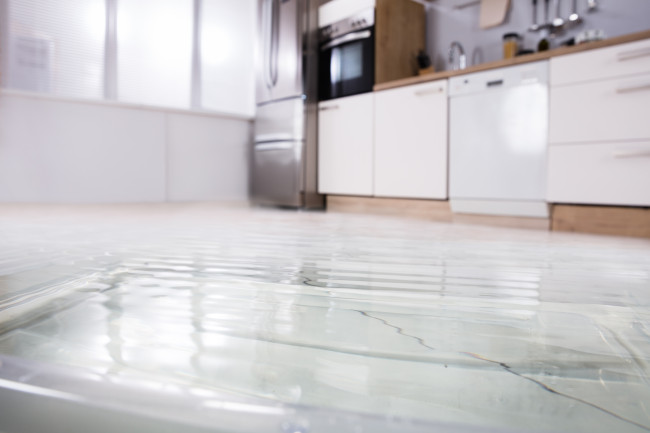How can I tell if an apartment I'm buying has flooded in the past?
- The senses don’t lie: sniff out the scent of mold and look for water damage and stains on the baseboards
- A new law requires New York sellers to disclose if they have ever filed a flood insurance claim on their property

If a building's lower level was upgraded, but the top floor left alone, or if the building's boiler was recently replaced, these could be signs of past floods.
I'm considering buying a ground-floor apartment, but with the recent flooding in New York, I have some concerns. How can I find out whether an apartment has experienced flooding or other types of water damage in the past? Besides mold, are there any telltale signs of past flooding or leaks?
There are definitely signs to look out for that may indicate a flood happened in the past, our experts say.
"First and foremost, the smell of mold or damp. The nose does not lie," says Lawrence J. Ubell, president of Accurate Building Inspectors. "Look at the baseboard molding for signs of both water damage and staining. If one knows where and if there is a main sewer or house trap pit, look in there to see if there is water in the pit, which would be an indication of a high water table."
This has become an increasing concern for New Yorkers in the aftermath of major flooding from recent storms. Fortunately many prospective buyers can access information about a home's flooding history if they suspect there may have been past issues but there's no visual evidence.
[Editor's note: An earlier version of this post was published in September 2021. We are presenting it again with updated information for October 2023.]
Firstly, the seller of your apartment is legally required to disclose if the building is in a floodplain, if it has flood insurance, and the building’s flood hazard area, as defined by the Federal Emergency Management Agency (FEMA) under a new law signed by Governor Kathy Hochul in September 2023.
Sellers also need to notify you if they’ve had drainage, flooding, or draining problems that resulted in standing water in their basement and if they have ever filed a flood insurance claim on the apartment.
You can also get a building’s flood history directly from FEMA, says Garrett Guttenberg, vice president of Denis A. Miller Insurance Agency.
"Flood claim history is protected information, but the owner of the property can get a flood history from FEMA," Guttenberg says. "You can have your attorney request it from the seller's attorney, and it will tell you the history of all claims on the property."
If that's not available, buyers can also go to FEMA's website and search the building's address on the agency's flood map.
"If the building is in Zone X, flood insurance is not required. If it's in Zone AE, it's totally possible there has been a flood in the past," Guttenberg says.
Other possible signs to look out for, he adds, are if a home's lower level has been recently upgraded, but the top floor left alone, or if the building's boiler was recently replaced. These could be red flags that the property's basement or ground floors were flooded in recent years.
Buyers who are concerned about future risks could purchase a FEMA flood policy, in addition to their regular apartment insurance.
"Just note that FEMA has pretty stringent restrictions on covering property in a basement, defined as a room below grade at all corners," says Jeffrey Schneider, president of Gotham Brokerage. "Some apartment insurance policies can provide sewer and drain backup coverage, but typically this coverage would not apply if an area is inundated with water. The water would have to come in exclusively or mostly through overwhelmed sewers or drains. If your street has turned into a river or lake, only flood insurance would apply."
Trouble at home? Get your NYC apartment-dweller questions answered by an expert. Send your questions to [email protected].
For more Ask an Expert questions and answers, click here.
You Might Also Like































